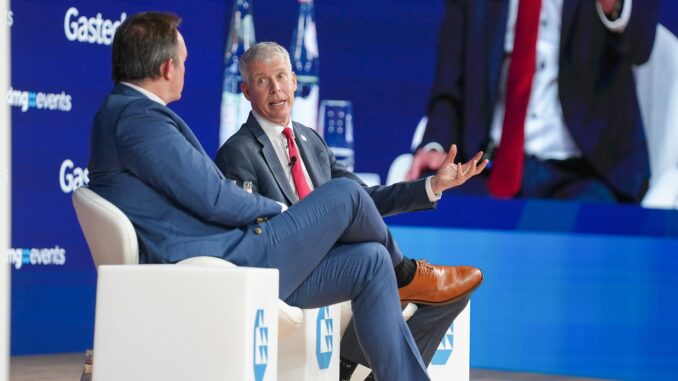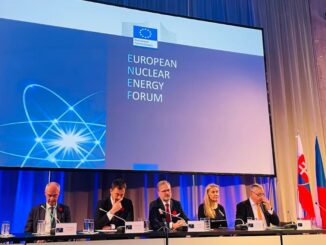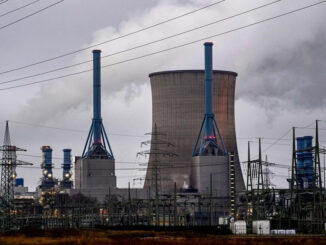
In a candid interview with the Financial Times, U.S. Energy Secretary Chris Wright didn’t mince words about the global push for net-zero emissions by 2050. “Net zero 2050 is just a colossal train wreck… It’s just a monstrous human impoverishment programme and of course there is no way it is going to happen,” Wright declared.
As the former CEO of Liberty Energy and a vocal advocate for American energy dominance, Wright’s blunt assessment resonates deeply, especially as evidence mounts from Europe that aggressive net-zero policies are indeed derailing economies and energy security. The Trump administration’s withdrawal from the Paris Agreement on day one underscores this shift, prioritizing affordable, reliable energy over what Wright sees as unrealistic climate mandates.
Wright’s critique isn’t isolated rhetoric; it’s backed by the harsh realities unfolding across the Atlantic. Europe’s headlong rush toward net zero—fueled by stringent regulations like the EU’s Carbon Border Adjustment Mechanism (CBAM), Methane Regulation, and Corporate Sustainability Due Diligence Directive (CSDDD)—is creating “huge legal risks” for U.S. energy exports and threatening the fragile EU-U.S. trade deal aimed at $750 billion in energy sales by 2028.
Wright warned that these policies could cause trade talks to “fall apart,” exacerbating the wealth gap between a booming U.S. energy sector and a struggling European one. He’s spot on: the U.S. has leveraged its fossil fuel resources to drive economic growth, while Europe’s deindustrialization and skyrocketing energy prices paint a picture of self-inflicted decline.Look no further than the United Kingdom for a textbook case of net-zero hypocrisy. The UK government is hammering its oil and gas industry with the Energy Profits Levy (EPL), now at a punishing 78% headline rate, while simultaneously relying on North Sea production to buoy the economy.
This “hidden net-zero tax” is accelerating the phase-out of domestic hydrocarbons, deterring investment, and risking an industry collapse that could forfeit billions in tax revenue and thousands of jobs. Offshore Energies UK (OEUK) estimates that reforming the EPL into a more progressive model could inject £137 billion ($185 billion) into the economy by 2050 and create 23,000 jobs, but current policies prioritize short-term fiscal grabs over long-term stability.
Meanwhile, the UK has slashed emissions by 48% since 1990 while growing its economy by 65%, proving that balanced energy strategies work—yet net-zero zealots are taxing the very sector holding it all together. As Wright noted in the FT interview, this approach is “heartbreaking” for Europeans facing unaffordable bills while chasing an “exaggerated activist view of climate change.”
Germany’s plight is even more dire, serving as a stark warning of net zero’s “death spiral.” The powerhouse of Europe is mired in back-to-back recessions, with GDP contracting 0.2% in 2024 and forecasts for zero growth in 2025.
Industrial output has plummeted 21% from pre-2020 peaks, hammered by energy prices that have surged nearly 50% since 2021 after cutting off cheap Russian gas—a direct consequence of net-zero-aligned sanctions.
Electricity costs now exceed 40 cents per kilowatt-hour, triple those in U.S. manufacturing hubs like Tennessee, forcing energy-intensive sectors like chemicals and steel to contract sharply. Even renewables are faltering: output dropped 3.2% in early 2025 due to poor wind and hydro performance, prompting a 6% rise in coal use to fill the gap.
Add in looming U.S. tariffs under President Trump and bureaucratic hurdles, and Germany’s export-driven economy is on the ropes, with 44% of companies bracing for negative impacts.
This isn’t just a German problem; as Europe’s largest economy stagnates, the EU faces a potential 1.25% GDP hit from sustained high energy costs.
Wright’s call to action extends beyond criticism. He urged Europe to ditch Russian energy imports—now at 14% of the EU’s fossil fuels, up 18% from 2023—to weaken Moscow’s war machine and open doors for American LNG and oil.
Buying U.S. energy, he argues, would be a win-win: affordable for Europe, lucrative for America, and a step toward ending the Ukraine conflict. His skepticism of the International Energy Agency (IEA) further highlights the need for reform; Wright has threatened U.S. withdrawal if the IEA persists in “total nonsense” predictions like oil demand peaking this decade, insisting on objective forecasting over green advocacy.
Secretary Wright is absolutely right on target. Net zero isn’t just a train wreck—it’s a policy catastrophe impoverishing nations and eroding energy security. The U.S. must lead by example, exporting its abundant resources while rejecting the regulatory overreach that’s crippling allies. As Europe grapples with the fallout, Wright’s words serve as both a diagnosis and a prescription: prioritize people and prosperity over unattainable ideals. The energy future belongs to those who get this right.
This also aligns with Stu Turley’s comments on the Energy News Beat podcast, suggesting that the world will be bifurcating into two distinct camps. Those following Net Zero and total deindustrialization and financial collapse, or those following sane energy policies to financial freedom.
Avoid Paying Taxes in 2025
Crude Oil, LNG, Jet Fuel price quote
ENB Top News
ENB
Energy Dashboard
ENB Podcast
ENB Substack






